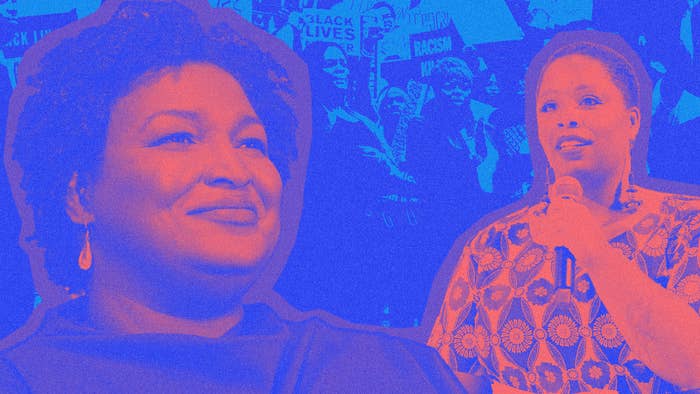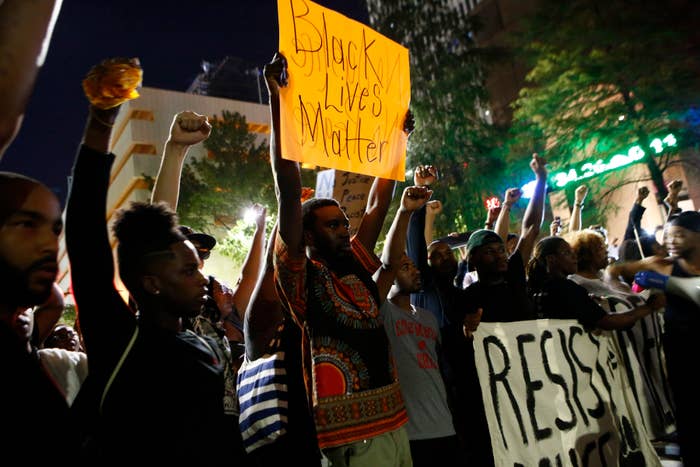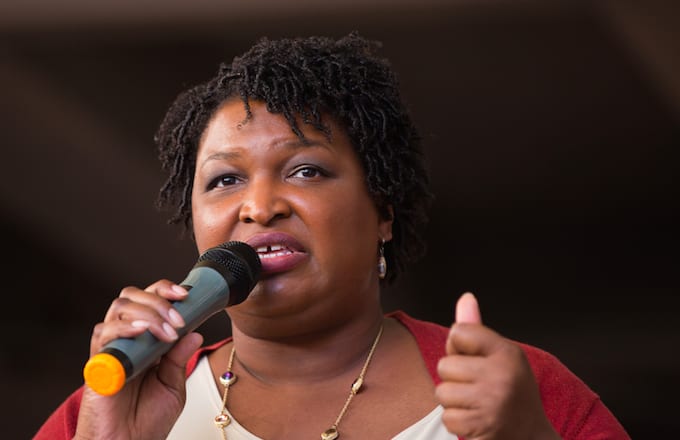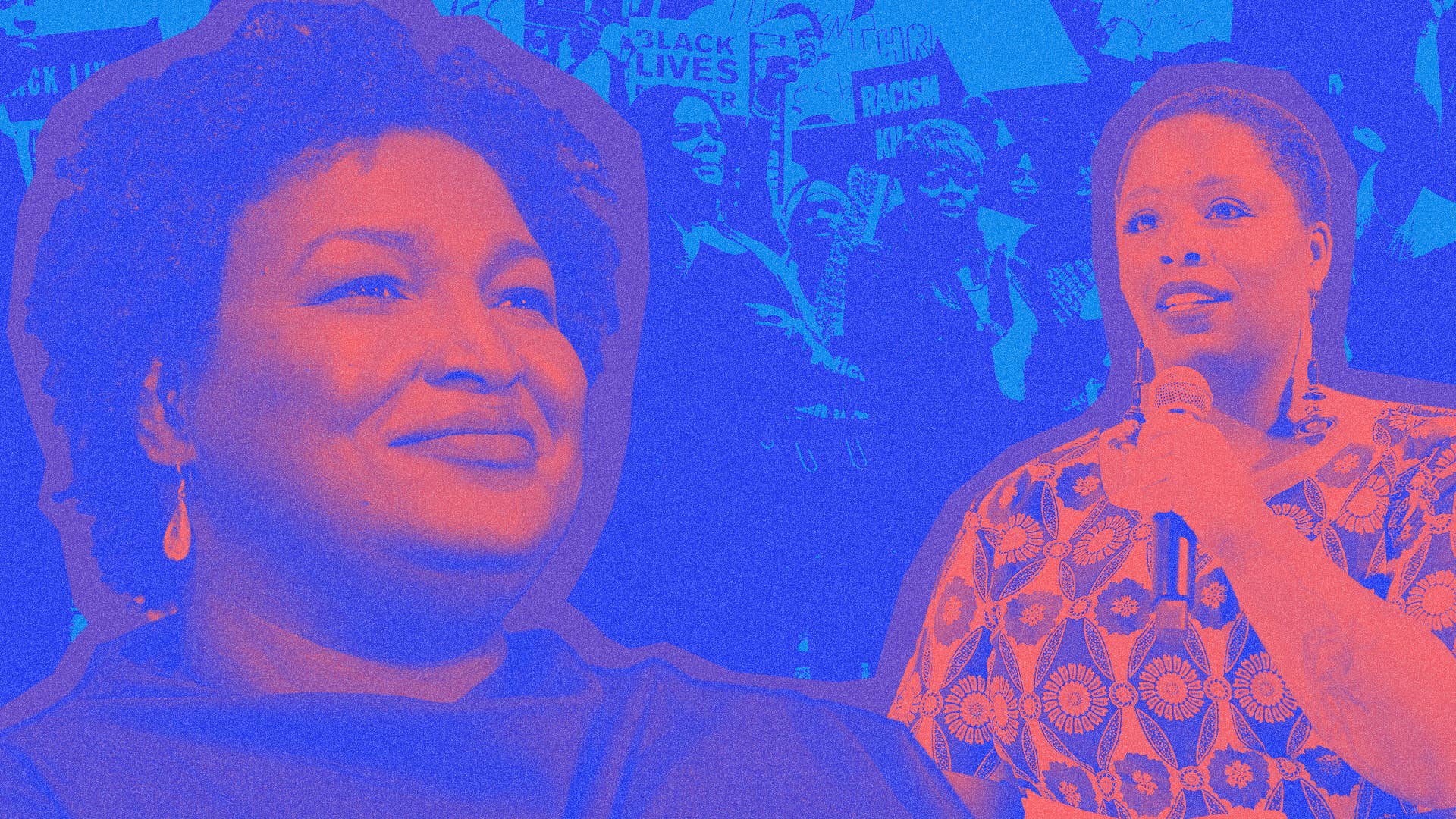
I was born and raised inside of the movement for social justice in Los Angeles. While my career as an organizer has led me to some incredible people, meeting with Stacey Abrams stands out as one of the most brilliant and deeply meaningful conversations to date. Abrams is a multi-hyphenate mover and shaker—she is a Spelman and Yale graduate, the former minority leader of the Georgia House of Representatives, a tax attorney, an author, and the co-founder and one-time COO of Nourish, a beverage company focused on infants and toddlers. In addition to that, she has co-founded a number of non-profit organizations along the way, among them Fair Fight 2020 and Fair Count. Her run to become the governor in Georgia in 2018 would have been successful if voter turnout had reportedly not been suppressed by the opposition. But she wasn’t going to go down like that. Earlier this year, she filed a 66-page lawsuit challenging Georgia’s entire elections system.
Abrams has a long list of well-earned accolades that reflect her dedication to her community and, more specifically, her dedication to and love for Black people. She was doing the work before there were any social media platforms to post about it and executing it in places like Georgia, where your Blackness, poorness, ruralness render you a target. It is because of people like her that movements like Fair Fight help to combat voter suppression and advocate for expanding health care policies for the most vulnerable Americans.
I stan for Stacey and, as the self-proclaimed leader of her fan club, I (like many others) hope to see her one day become vice president of the United States—and eventually the president. The power of Abrams is her ability to understand the importance of the moment: whether it is the weight of our vote, or to be counted in the census, she sees the larger vision and continues to push for the investments, improvements, and dignity that have been promised to us since the ratification of the U.S. Constitution.
During this time of global crisis, I was able to sit with Abrams for a few moments to talk about her efforts to help cash-strapped families through Project 100. We also discussed why this current pandemic exposes racism in our health care system, and how our resiliency can connect us to change our country’s narrative.
For those unaware of the voter suppression that hindered your gubernatorial campaign last year, could you describe why you launched the Fair Fight 2020 campaign and how it would combat such issues as voter suppression and polling station closures?
Fair Fight 2020 is the political arm of my work on voter suppression. When it comes to the question of registration and staying on the rolls, one of the dynamic challenges comes most often from folks in the South, as a vestige of the 13th Amendment, the Mississippi Plan, and Jim Crow. We have laws that make it difficult for communities who are otherwise eligible to get registered.
We saw this happen in Florida when the returning citizens were able to get support for a renewal of their right to register to vote, only to have it batted away by the legislature and then by the Florida courts. Luckily, the federal courts are still considering the question. But in Georgia, as well as a number of other states, there remain impediments to returning citizens being able to register [to vote] and get on the rolls. This challenge also extends to young people who want to get registered online. You have a number of states that don’t provide online access and still do the traditional way of self-registered. Think of when you’re going to get your driver’s license.
For young people who live in places where you don’t necessarily need to or can’t afford to drive, then you can’t get on the roll because you lack ID. You have systems like Georgia’s exact match system, which disproportionately affects Black and brown people because it essentially states that if your name or information doesn’t exactly match some state or federal records, then you can get out of the system and not be permitted to vote. If you live in a state with strict voter ID laws, then you can’t even cast a vote in the ballot! We still have residents who were born during segregation and weren’t permitted to be born in city hospitals, which means most of them do not have birth certificates.
Take Wisconsin, for instance, wherein 2016 a woman who was 100 years old was told for decades that she was not eligible to vote because she couldn’t produce a birth certificate. Yet, she could produce the 1930 census where her name appeared. But without that birth certificate, she was denied the right to vote. We saw polls shut down in places such as Wisconsin during the primary and in Texas when Black and brown voters saw almost 500 precincts shut down—which meant they all stood in line for hours in order to cast a vote. Which brings me to the last point of—does your ballot count? If you’ve gone through all these hurdles, you still run into the issue of provisional ballots. In Georgia, Black people were disproportionately given these, which means that your vote doesn’t count unless you come back with some item or method of proving yourself. Most folks don’t get two days off work to go out and vote, which means absentee, and there are laws in place in communities such as Georgia, Florida, and Arizona where they use rules about your signature to determine whether you were the person who voted.
And I like to point out that my own signature doesn’t match from CVS to Kroger to the next, and that shouldn’t be the reason why you can deny me the right to vote. Voter suppression exists in all of those ways, and we are tackling it head-on in the 18 states that will decide the presidency, the U.S. Senate, as well as the places where a win means control over redistricting—which is how the political lines will be drawn for the next decade of our lives. This is something we have to remember—the future of our country isn’t decided in one election at a time; it is decided in 10 years at a time. So we have to win this election for the next 10 years to work in everyone’s favor and not just for a few.

I will say that that kind of nuance and attention to detail when breaking down the importance of voting is greatly missed, given today’s political climate. I wanted to ask you about Project 100, which has the ambitious task of sending $1,000 to 100,000 economically vulnerable American families within the next 100 days. With glitches already affecting Trump’s stimulus bill, how can Project 100 overcome any similar obstacles to make an economic impact?
Project 100 is extraordinary in that they are using the private sector to fill in the gaps where the public sector is not doing its job. Folks aren’t receiving their stimulus checks, yes, particularly those who receive SNAP benefits—in part because, if you do, you’re not traditionally enrolled in a bank. And if the Treasury Department is sending your check directly to your bank account that you do not have, then you’re not getting a check. Similarly, people don’t file taxes when they don’t make enough money to go to an IRS or an accountant. So if the other way of tracking an authorized receipt for a stimulus check hasn’t been digitized, then the antiquated systems of the federal government are not serving this incredibly vulnerable population.
What Project 100 is doing with this $100 million is we’re going to the people who are SNAP beneficiaries and who use the Fresh EBT app. We will make sure that they get capital, plus access to more information so that they can grow their finances. If you narrow those who receive SNAP benefits to the 2 million users who use Fresh EBT, then 100,000 of those users will get a check for $1,000. I know those are a lot of filters, but the reality is that the private sector is stepping in where the public sector and the federal government has failed.
Project 100 is not only tackling a direct issue but highlighting the importance of another. How has this pandemic affected you and your organization’s attempts to reshape outreach regarding the 2020 Census?
[Laughter.] I know I have a lot of organizations, but I’ve had a lot of time on my hands with this health crisis we’re in. Fair Fight is about voter suppression, while Fair Count is about the census. With $1.5 trillion dollars marked for usage, it is a large amount of money that anyone in politics looks to consolidate for the next decade.
The Trump Administration has already attempted to rig the 2020 Census to erase people of color, underfund the census, and have questioned people’s citizenship. We didn’t anticipate a pandemic, but when you’re already preparing for the worst, you’re ready to respond. So Fair Count is a system that, instead of knocking on doors, will make phone calls and text to support the census. This also lets us shift our resources from gas and travel to create more digital advertisements and outreach. We’re now in seven states and expanding, with the goal to build support across the South for the census, because a lot of places aren’t spending a dollar on it.
The reality is—and I want to put this into sharp relief—the expected undercount of Black and brown people. We lose $3.3 billion dollars every year from our communities, and in the midst of this pandemic, those are the dollars that pay for PPEs (personal protective equipment), hospital beds, and the like. That underfunding started 10 years ago during the last census, and if we don’t get counted this time, the next time a crisis of this magnitude hits, we’ll be undercounted and left out again.
There are so many people across generations who still don’t actually get what filling out the census means. It is important for us to understand that. I’d like to know how you and your team have adjusted the strategy to deal with these new rules of social distancing and being under quarantine, as well as how you all are coping with this moment.
Every single organization that we have built was designed to be nimble. We’ve shifted from working in person to working from home. We not just use Zoom for our meetings, but because we recognize that a lot of our folks don’t have access to the internet, we do phone calls as well. I recently had a call with hundreds of people from the hardest-hit part of southwest Georgia, which is largely Black, largely rural, and largely poor. We were on this call not just to hear their thoughts, but to share information. We had doctors on the call who could share good information, while at the same time the governor of Georgia was doing the opposite.
We are using the analog, as well as the digital, to meet this moment head-on. The people we serve have never been at the top of the food chain, and so we always have to be prepared to meet them where they are, not where we want them to be. That means having strategies and adaptations in place that when the world catches a cold and our community gets the flu, we’re prepared for that flu delivery. Which, in this case, is a pandemic delivery.

Speaking of delivery, there are big flaws in our deplorable health care system. We know that Black, brown, and native communities are disproportionately affected by this pandemic, so what are your thoughts on tackling racism and biases in the health care industry?
We have to have a health care system that recognizes that no one should perish for lack of access to insurance. Georgia and every single Southern state, with the exception of Louisiana and Kentucky, have refused to expand Medicaid. You add to that that rural and poor communities are having their hospitals shut down and their doctors are not there and you see how big the problem is. There are nine counties in Georgia without a single physician and a number of other places with only one. Those resources tend to flow more heavily to places that have an abundance, but in the South, which is true nationwide, race is one of the strongest predictors of your economic status. And if these health inequities exist for the poor, they are going to concomitantly exist for people of color. If they exist for people of color, they’re going to concomitantly exist for people who are poor.
We’ve watched this president misinform the public about this COVID-19 crisis from the very beginning. He’s done so many dangerous things already, but what do you think should be coming from our leaders at this moment?
Let’s be clear: Trump lies. He lies out of ignorance. He lies out of fear. He lies out of habit, and yet he is incapable of accepting responsibility or accountability. One of the reasons why I’m so direct is because I know my community is used to being lied to, and part of our responsibility is that of candor. People may not like what they hear, but if they don’t trust [us] when they hear it, they will harm themselves and the community. When I tell you something, I need you to believe that I mean it and that it is so. This is what we need from the next president of the United States.
With the exception of Fair Fight 2020, all of the organizations I lead are non-partisan. We need a president who will actually tell the truth, take responsibility, and that’s why I support Joe Biden. He won’t tell us a fairy tale. The fairy tale will fall apart when your grandmother can’t get a ventilator because they’ve under-resourced your hospital. In this day and age, we should demand every person that’s running for office—essentially trying to earn our trust—to prove it by telling us the truth.
There are a lot of us that would love to see you as president someday, and you’ve said that you would be honored to be the 2020 vice presidential nominee. If you were to be tapped for the role, what would be your top five priorities as the vice president of the United States?
First, it is Joe Biden’s choice who he picks. I’ve just tried to indicate my willingness to serve. I recognize, too, that he has a list of eligible and qualified people to choose from. But one of the responsibilities of the vice president is to be the chief lieutenant for the president. From what I’ll tell you about Biden is that he understands the brokenness of our democracy and wants to address it. He understands the brokenness of our economy and knows that any solution has to begin with those who are the most vulnerable and the least resilient. He understands the long-term effects of climate change.
As someone who has interned with the EPA for two summers, focusing on environmental action, I would want us to pay attention to the racist and classist implications of how the government makes decisions about our environment. I would also want us to think about the people in our society as victims of trauma, which means that we would have to work on how mental health is addressed. This pandemic isn’t going to suddenly end on a certain date, which means that whoever is in the White House has to go beyond the notion that mental health is only for those who can afford it and recognize that it is directly related to our incarceration rates.
It is related to drug use in our country and our ability for communities to keep and hold on to employment. These are conversations that I believe Joe Biden would be very willing to have and to lead because I’ve heard him talk about these specific concerns, and if I were so honored, I believe that those would be issues he would focus on, and I would be proud to help him navigate them.
Patrisse Cullors is an artist, activist, a co-founder of Black Lives Matter, and the founder and chair of Reform LA Jails, a Los Angeles-based committee that represents a coalition of citizens, community leaders, and organizations to prevent crime and permanently reduce the population of people cycling in and out of jail experiencing mental health, drug dependency, or chronic homelessness issues.

